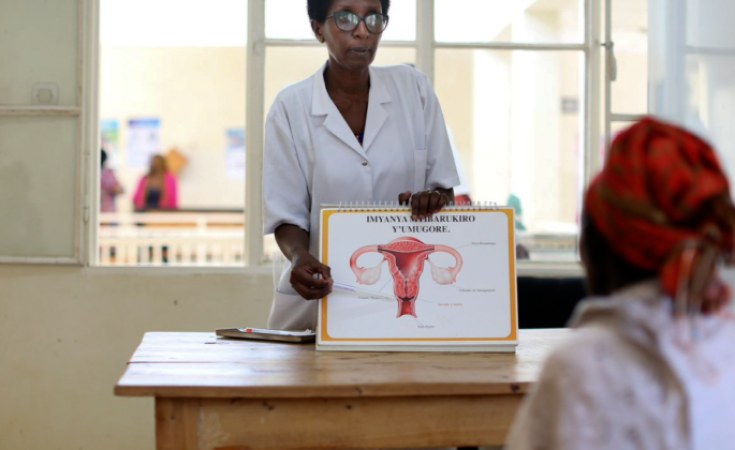CERVICAL cancer ranks as the most ubiquitous cancer among women between 15 to 44 years of age in Lesotho. It is also one of the leading causes of death among women.
At least 362 of 541 women diagnosed with cervical cancer annually die from the scourge.
This is according to the Human Papilomavirus and Related Cancers, Fact Sheet 2023, which also states that about 3.2% of women in the general population are estimated to harbour cervical HPV-16/18 infections at any given time, while 62.5% of invasive cervical cancers are attributed to HPVs 16/18.
The report states that Lesotho has 771,897 women aged 15 years and older who are at risk of developing cervical cancer.
"Current estimates indicate that every year 541 women are diagnosed with cervical cancer and 362 die from the disease," states the report.
Echoing similar sentiments during a brief interview with the Lesotho Times on Tuesday this week, was one of Lesotho's Clinical Oncologists, Kabelo Mputsoe, who warned that cervical cancer remained a health threat in the country.
It was therefore imperative for Basotho women to screen for cervical cancer and continue accessing treatment in the case where a diagnosis is positive.
"Cervical cancer is the leading cause of cancer related mortality among women globally. Cancer screening can save the government funds spent on patients send abroad for treatment. Cancer is curable if is detected early," Dr Mputsoe said.
She added cervical cancer was caused by the Human Papillomavirus (HPV) which was commonly spread through sexual intercourse.
Cervical cancer develops very slowly.
It can take years or even decades for the abnormal changes in the cervix to become invasive cancer cells. It might develop faster in people with weaker immune systems, but it will still likely take five years for symptoms to emerge.
"You can reduce your risk of developing cervical cancer by having screening tests and receiving a vaccine that protects against HPV infection," Dr Mputsoe said.
When cervical cancer diagnosis has been made, it is often first treated with surgery to remove the growth of cells. Other treatments may include medicines to kill the cancer cells. Options might include chemotherapy and targeted therapy medicines.
Radiation therapy with powerful energy beams also may be used. Sometimes treatment combines radiation with low dose chemotherapy.
When it starts, cervical cancer might not present any symptoms. However, as it grows, it might cause signs and symptoms such as vaginal bleeding after intercourse, between periods or after menopause.
It may also present with menstrual bleeding that is heavier and lasts longer than usual, watery, bloody vaginal discharge that may be heavy and have a foul odour, as well as pelvic pain or general pain during intercourse.
Screening can be done in three ways namely a pap smear, visual inspection of the cervix with acetic acid (VIA), and visual inspection with Lugol's iodine (VILI).
These are said to help detect any abnormalities in the precancerous lesion stages that can be treated on the spot with minimum invasion.
Dr Mputsoe said since every health centre in Lesotho offered cervical cancer screening and early treatment, all Basotho especially women, should take advantage of those services.
Currently, cancer patients can seek services at the Sankatana Oncology Clinic for cervical cancer, breast cancer, prostate cancer, vulva cancer, penile cancer, skin cancer, oral cancer, esophageal cancer, as well as lung cancer.


